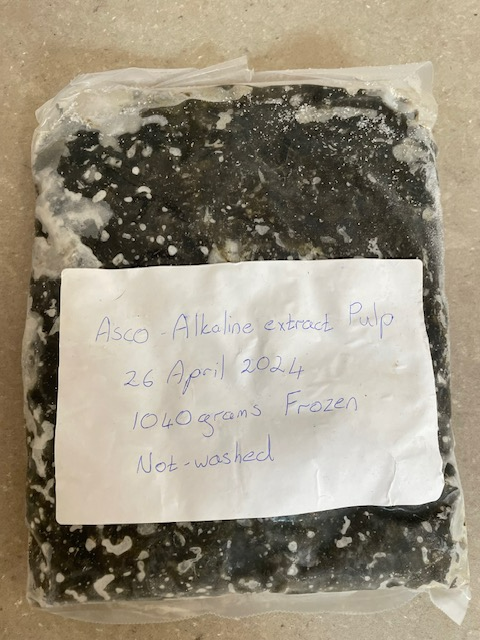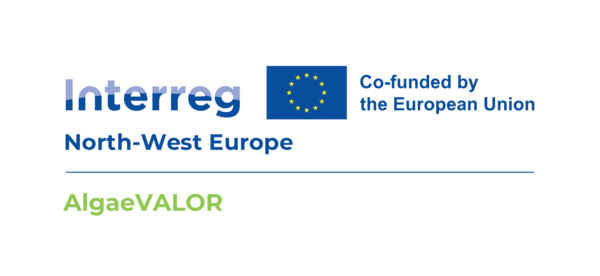Wool dyed with seaweed residual stream
2024-06-07
In recent weeks, Zeefier has carried out the first tests of processing residual seaweed into textile dye within the Algae Valor project. The extraction resulted in a dye with which white wool could be dyed beige (see image).
Zeefier recently processed Green Turtle's seaweed residue from Ireland in its own lab in the Netherlands, where it also normally processes seaweed into dye. Anne Boermans, one of the founders of Zeefier, used Zeefier's ‘secret recipe’ for this.

Tests
About the first tests, she says: ‘The tests went well! For the time being, it does seem like we need a bit more seaweed from this secondary stream than when using seaweed that comes directly from the farmer or from the beach. Of course, this is only an initial experience. Before we can draw that conclusion, we need to do more tests.'
The logistics element on this (lab) scale is proving to be quite a challenge. After all, the seaweed has to be dried at another location, after which it has to be transported back to the lab. And that is, for now, time-consuming.
In the coming time, Zeefier will refine the tests.

Change the textile industry
Zeefier is one of six partners in the Algae Valor project, along with BlueBlocks, Spaak Circular Solutions, The Seaweed Company (Green Turtle), Ghent University and North Sea Farmers. They are all members of North Sea Farmers. Seaweed believes seaweed is the answer to the polluting textile industry because it does not need fresh water, farmland or chemicals to grow. It purifies CO2 and produces oxygen, making it a perfect sustainable solution for the fashion and interior design industries.
Anne Boermans founded Zeefier together with Nienke Hoogvliet to radically change the textile industry. Together, they are creating the perfect recipe for circular textile dyes from seaweed, making it available for industrial use.
With Algae Valor, they want to find out if they can use this residual stream to use the dye as circular dye in the textile industry. The project is co-funded by the European Union.



